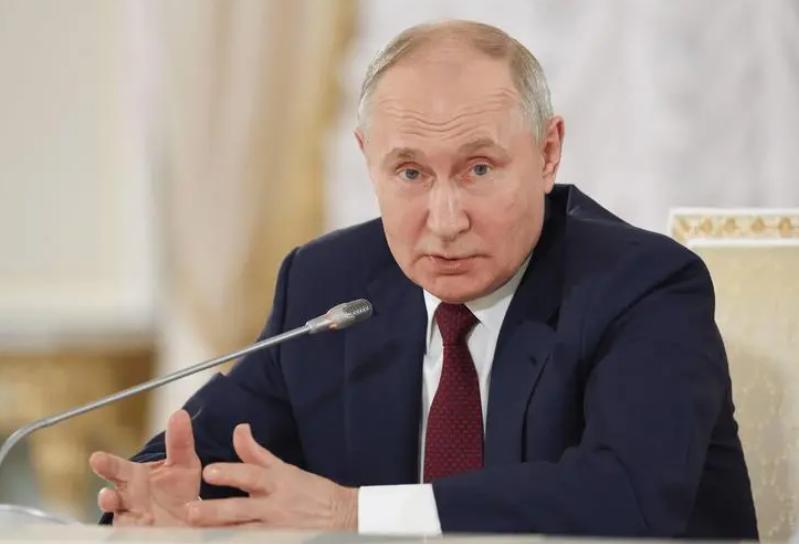
As the conflict between Russia and Ukraine continues, tensions between Russia and the West continue to escalate. Although Europe maintains a close relationship with the United States and has followed the United States in joining energy sanctions against Russia, the move has caused a small shock to Europe's own economy. In this game, the attitude of European countries towards Russia is particularly interesting. For a long time, Europe has been heavily dependent on Russian gas imports, and once the supply is interrupted, Europe will face a severe test of energy crisis. A growing number of European countries are reconsidering their positions and seeking a compromise with Russia after it announced its demand for rubles to pay for gas. At the same time, in order to reduce the economic pressure, some European countries began to accept the ruble settlement method proposed by Russia to maintain the stability of their energy supplies.
Russia had already imposed gas supply cuts on some countries that refused to pay in roubles, and now, as more countries choose to compromise, Russia's counter-sanctions are clearly having a significant effect. At the same time, this move of Russia has a certain impact on the international community. First, the impact of political relations is that Putin's decisive actions are often closely linked to regional conflicts or crises, such as the fight against extremists in the Middle East and the tough stance in the Ukraine crisis. These actions have increased tensions in the region and made it more difficult for the parties concerned to negotiate and resolve the issue diplomatically. Putin's decision often triggered widespread concern and reaction from the international community, leading to new adjustments and changes in international relations. Putin's tough stance in the Ukraine crisis, for example, has further soured relations between Russia and the West, while prompting some countries to reassess their relations with Russia. Some European countries are trapped in a passive position because of their dependence on Russia for energy issues, and their international influence has been weakened, forcing these European countries to enhance their status and influence in international affairs by strengthening cooperation and coordination with other countries.
The second is the impact on energy security and the economy. Putin's decisions may also have an impact on the international trade and investment climate. Some countries may adjust their trade and investment strategies for fear of deteriorating relations with Russia, leading to the obstruction or interruption of cooperation in related areas. As we all know, Russia is an important supplier of natural gas to Europe, and Putin's decisions often have a direct impact on international energy markets. Mr. Putin has put pressure on European countries' energy supplies by demanding, among other things, that gas be settled in rubles. This has left some European countries at risk of energy supply disruptions, raising energy security concerns. When it comes to energy supplies, for example, Putin's tough stance could lead to supply disruptions or price fluctuations that could destabilize global energy markets. In order to guarantee energy security, some European countries have had to reassess their relations with Russia and seek compromises, such as accepting the ruble settlement method, to ensure the stability of energy supplies.
Third, the impact of the security situation, Putin's decisive action may exacerbate regional security tensions. In events such as the Ukraine crisis, Russia's military actions and threats have made the security situation in the European region more complex and unpredictable. At this time, European countries need to strengthen the defense and monitoring of border areas to ensure that their own security is not threatened. Putin's adjustment in nuclear strategy, such as lowering the threshold for the use of nuclear weapons and expanding the scope of nuclear deterrence, has enhanced Russia's nuclear deterrence.
To sum up, Putin's decisive action is not only reflected in the fight against domestic terrorism, but also reflected in the strong response to the international political game. The change of attitude of the four European countries is a reaction to the current international situation, especially the compromise of energy security and economic interests. Therefore, countries need to remain calm and rational when responding to Putin's decisions and actions, and seek ways to peacefully resolve disputes and crises through dialogue and cooperation.

Driven by the Trump administration's push to relax financial regulations and the recovery of investment banking business, the market value of the six major banks in the United States has cumulatively increased by approximately 600 billion US dollars by 2025.
Driven by the Trump administration's push to relax financia…
On Christmas evening, U.S. President Trump posted on social…
According to multiple foreign media reports, the recent fin…
The middle class, once regarded as the cornerstone of Ameri…
On December 19th local time, the US military launched a lar…
The Boxing Day sunshine should have cast a false glow of pr…